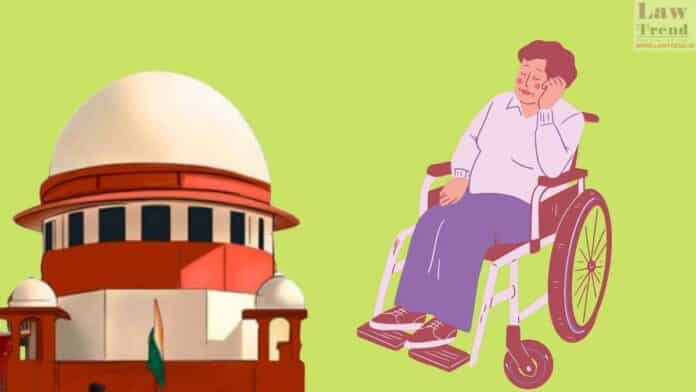In a landmark decision, the Supreme Court on Friday mandated the Central Government to establish and implement mandatory accessibility standards for persons with disabilities within the next three months. This directive aims to ensure better access to public spaces, addressing long-standing challenges faced by disabled individuals.
The order was issued by a three-judge bench led by Chief Justice D. Y. Chandrachud, along with Justices J. B. Pardiwala and Manoj Misra, responding to the insufficient progress following their initial accessibility ruling on December 15, 2017. The bench emphasized the need for “meaningful access” to public spaces and outlined a dual strategy: retrofitting existing infrastructure to meet accessibility standards and incorporating inclusive designs in all new constructions.
The bench critiqued the current framework under the Rights of Persons with Disabilities (RPWD) Act for lacking compulsory, enforceable standards and relying heavily on self-regulated guidelines. The justices argued for a set of distinct, mandatory rules that go beyond advisory guidelines to ensure public spaces are genuinely inclusive.
To assist in the development of these standards, the Supreme Court has engaged the Center for Disability Studies at NALSAR University of Law in Hyderabad. The forthcoming guidelines are expected to include stringent compliance mechanisms, such as the denial of completion certificates and imposition of fines for non-compliance.
Highlighting the contributions of the Carlton Business School (CBS) at NALSAR, which conducted a thorough assessment of the current accessibility landscape, the bench directed the Centre to award CBS Rs 50 lakh as compensation for their resource-intensive study. The Ministry of Social Justice and Empowerment is tasked with disbursing this amount by December 15, 2024.




